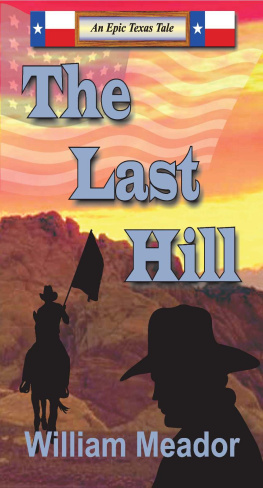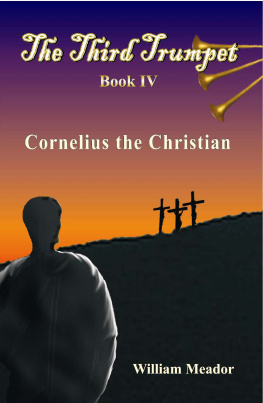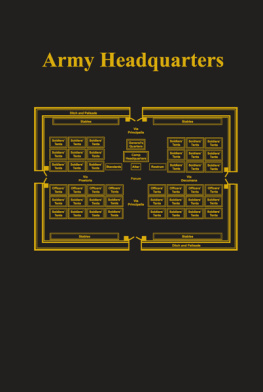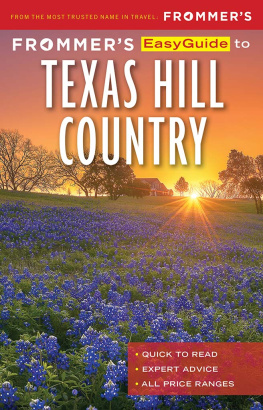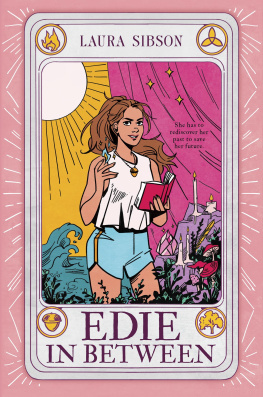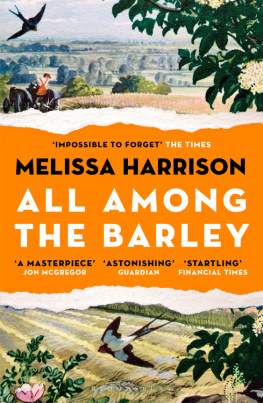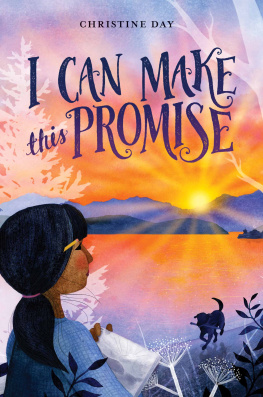Two-Gun Edie With A Parasol
Copyright 2012 by William R. Meador
All rights reserved. Copying or reproducing by any mechanical, photographic, or electronic processes, or in the form of any phonographic recording, shall violate the copyright. No transmitting or copying for public or private use is allowed, other than as brief quotations embodied in articles and/or reviews, without the express written permission of the author and publisher.
ISBN-13: 978-0-9825340-8-3
Introduction
Edith or Two-Gun Edie With a Parasol
Many stories have been written about gunslingers, stagecoach holdup men, bank robbers, and general no-good outlaws, but little has been said about some of the most unusual women in the west. In most cases the family would just as soon not have the truth put in story form.
Here is a story of Edith May Carter. She is one of those women not mentioned in any history books, chronicles, or articles.
Edith was born in 1866 in Tennessee, where her father was a ridge running moonshine maker. The family moved to east Texas in 1870 when she was four. Her father, run out of several towns, gradually moved west and to the frontier.
In a poker game, he won a small farm in West Texas and there they dug in and hung on, eking out a sub-standard living. Edie, who was raised on this dirt farm, never knew any prosperity, comfort, or how a full stomach felt. As the fourth child in a family of eight children and the oldest girl, she was almost a surrogate mother to the others. From these humble beginnings of attending church and making good grades in school, she turned to gambling as a means to make a living.
She is not the average pioneer woman.
She was known in her family as Edith, but to others, she became known as Two-Gun Edie.
Contents
The wind struck out of the northwest with all the fury of a wild tortured beast. Great clouds of dirt and dust filled the air as the temperature began to drop. As the wind increased the sun faded behind the red boiling dirt. Barn doors, window shutters and corral gates began to bang and break loose from hinges or fasteners. The first day of winter arrived with a solid cloud of dust, cold air, and a promise of snow. The red dirt only introduced what the West Texas call A Blue Norther.
Wet laundry on the clothes line flapped in the wind. In minutes clothes blew across the yard and became covered with brown dirt. Mesquites, barbwire fences and an occasional bush caught the material. With the snagging of the cloth, the wind whipped and tore the clothes to shreds. The garments not blown from the lines were covered with the red dirt.
Edie led two of her sisters, the eleven year old twins, Ruth and Rose, out the back door and into the boiling dirt in an effort to collect the ruined wash and torn clothes. They chased the clothes downwind for a hundred yards before managing to catch the last piece. With a struggle they walked against the wind with their arms full of wet and dirty garments.
Get them in the house, Edie shouted over the howling wind. She felt the sand cutting her bare legs. How she wished she were a boy and could wear long pants or overalls. At least her brothers would not be stung raw by the cutting sand.
Little at a time, the three girls managed to catch the clothes and retrieve them. The wash was dirty and much of it nothing but rags.
Edie, almost seventeen and the oldest girl in the family, would be to blame. Her father would likely curse her and then take the strap to her, if he found out about the damage. More than once he whipped her until she bled through her thin cotton clothes.
There was nothing she could do to change her lot in life. As the oldest girl she carried the responsibilities only a full grown woman should shoulder. Her mother made her cook, wash, clean and iron many hours of the week. Often she would work on chores long after the rest of the family retired.
Now, she shivered in her thin dress. The cold wind chilled her to the bone. With no real warm coat, she shook and her teeth chattered. Having outgrown her coat, she knew there was no money to buy another.
Her mother screamed at her, Why didnt you get those clothes off the line before that dirt hit?
Edie dodged a blow to her head. I did not see the storm coming, Mama.
Stupid girl, do I have to tell you everything you are to do?
No, Maam, Edie replied and tried to make herself smaller.
Well, get those clothes out of sight. Your Pa will be coming in soon. They cant plow in this wind and dirt. I dont want him to see those clothes. Some of them are ruined and he will beat you and me.
Yes, Maam, Edie muttered softly.
What did you say, girl?
Edie spoke a little louder, Yes, Maam.
Edie, with deft hands and determination to comply with her Mas wishes, rushed to hide the clothes.
She pushed the back door open against the wind and shoved the wet, dirty and torn garments into an extra clothes hamper. She threw other clothes on top and then slammed the lid. She saw her Pa and three brothers leave the barn and start to the house. She ducked inside.
Peeking out through the ragged thin curtains, she watched the men folks circle the house and come in the front door. They came that way to be out of the wind when they entered the house.
The four men folk were big, raw and loud. Her Pa stood well over six feet six and weighed close to three hundred pounds. Her three brothers, all a copy of their father, ranged from six feet tall to almost as tall as their Pa. Not only were they tall, they were as strong as bulls.
They shook dirt from their hats and brushed it from their hair and clothes.
Blasted wind, her father snorted. We could have finished that last bit of harvesting if it had not struck up. Blasted wind!
Pa, if we are not going to work, can we go down to the Millers?
What do you mean not work? We are going to the barn as soon as we have some cool water and shuck corn until dark. Now, shut your mouth and get out of my way. He grabbed the porcelain kipper in one hand and pumped water in a bucket with the other hand. The hand pump was the only convenience in the house.
Yes, Pa, Sam answered. He was the oldest, twenty-one and wanting to marry one of the Miller girls. He, like the rest of the folks on this side of the county, lived as dirt poor as church mice.
He was not the only one wanting to marry. John, nineteen, would be getting married in two weeks. He got the Hinkler girl with a child and there was going to be a shotgun wedding. The two families were trying to keep it quiet, but everyone knew about the couple and their problem. Out of courtesy, no one said a word.
George, the third brother and eighteen, told Edie, I am going to run away and join the army. I will leave in the spring.
The army! Edie exclaimed.
Yes, the army. At least they will treat me like a man and not a slave. Pa has busted me for the last time. If he whips me again, I will run away before spring.
Edie and George were close. Maybe closer than the twins, at least George always took up for her. He came to her defense several times and took a beating for his loyalty.
The four men folk drank some water, put on their hats and went out, this time, the back door. They pushed hard against the wind to hold the door open enough to make their exit.
Edie again peeked through the thin cotton flour sack curtains and watched them cross the yard to a small barn. Her Pa called it the corn barn. Actually they husked corn and mended harness in a side room.
It was dark when her Pa and brothers returned from the barn. As usual, they entered loud and boisterous. It was just their nature. As the boys came across the back porch, John shoved George. In his effort to keep his balance, George knocked over the laundry basket. The clothes spilled out, revealing the dirty and torn garments.
Next page

